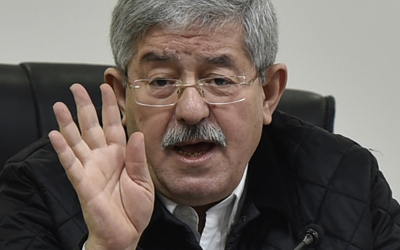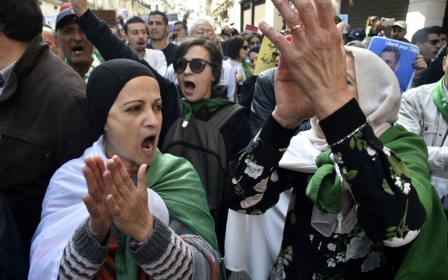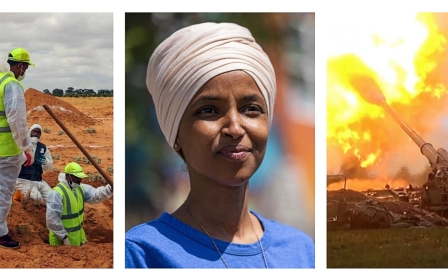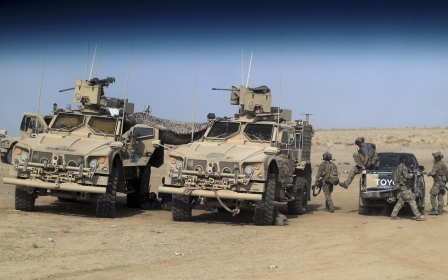Arabic press review: Egyptian opposition abroad launches new party to counter Sisi
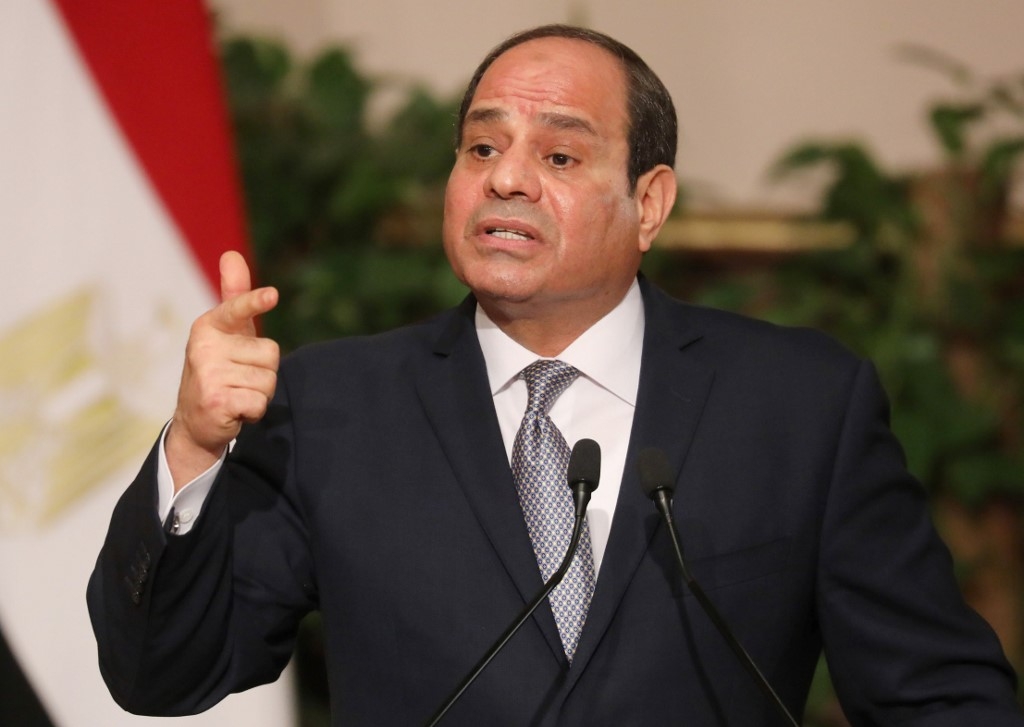
Egyptian expats launch new political party
Egyptians living abroad will launch a new political party that aims to end the reign of President Abdel Fattah el-Sisi, Arabi21 reported.
According to political activist Nancy Kamal, Egyptian opposition figures will announce within days the establishment of Amal Misr (the Hope of Egypt, in English). It will be the first political party to be formed since Sisi came to power following a coup in 2013.
The party will include academics, politicians and activists, in addition to young people who represent a new generation that "emerged from the womb of the January revolution" [in 2011), said Kamal, who will serve as the party’s spokeswoman.
Amal Misr will have “headquarters in the US, Britain and Turkey, and its membership will be open and available to all Egyptians from different backgrounds,” Kamal told Arabi21 in an exclusive interview.
New MEE newsletter: Jerusalem Dispatch
Sign up to get the latest insights and analysis on Israel-Palestine, alongside Turkey Unpacked and other MEE newsletters
She promised “great surprises” for the Egyptian people in the near future, and said, "We hope that the party will present a bold step taken by Egyptians abroad to communicate with Egyptians at home, as a way to unite efforts and truly express the concerns and issues of our people."
Sisi, a former army general, came to power after toppling his democratically elected civilian predecessor, Mohamed Morsi, in 2013. He has been accused of silencing dissent by jailing thousands of political prisoners opposed to his rule.
Islamic State stages comeback in Syria
Islamic State has regained a strong presence in a large swathe of Syria, following weeks of intense attacks against government forces in the vast Badia desert region, Asharq Al-Awsat reported.
Islamic State’s escalated onslaught on Syrian forces and their Russian and Iranian allies indicates that IS has managed to regroup following a crushing defeat in eastern Syria less than two years ago, the newspaper said.
The group has carried out a number of assassinations, intimidation attacks and extortion operations in areas extending from the east of the Euphrates to the Iraqi borders, where the Syrian Democratic Forces (SDF) took control after defeating the Islamist militants in March 2019 with US support, according to the report published by Asharq Al-Awsat.
The report described the Syrian desert as an ideal place for IS’s dormant cells to “hide, rest, regroup, and then launch quick attacks” against isolated villages or convoys that cross the often exposed desert roads, which are difficult to secure.
The forces of Syrian President Bashar al-Assad - with significant support from Russia, along with thousands of fighters affiliated with Iran - have been successful in regaining control in all the important cities in the Badia since 2017.
However, the depth of the Badia, which constitutes about half the total territory of Syria, remains beyond the control of Damascus, especially when IS members seem to “vanish in the desert sands or be swallowed up by the mountains’ caves”, the newspaper said.
Ahmadinejad wants closer Iran-Saudi partnership
Former Iranian President Mahmoud Ahmadinejad has called for closer cooperation between Iran and Saudi Arabia, saying it would create “a golden opportunity for peace and development” for all neighbouring countries.
In an exclusive interview with Kuwaiti newspaper Al-Qabas, Ahmadinejad said both Iran and Saudi Arabia are major players in the Middle East and on the international stage, and he believed an Iranian-Saudi partnership will help bring the region together.
“Friendship, cooperation and coordination are demands that the countries and peoples aspire to, and all of this will change the situation in the region, create a kind of unity among its peoples, and create golden opportunities for peace, reconstruction and development for all the countries of the region,” he said.
When asked what efforts he would expect from Kuwait to resolve differences between Iran and some Arab countries, Ahmadinejad responded:
"Good efforts must be in the service of unity and brotherhood among all peoples, and it is expected from all officials of the countries, especially the Emir of Kuwait, who has good relations with the neighbouring states, to work on reaching a breakthrough more than before.”
Algeria shocked by ex-premier's corruption confession
Former Algerian Prime Minister Ahmed Ouyahia stunned the nation with his candid admission in court that he had sold dozens of gold bars on the black market, bars that Gulf donors had offered to the presidency, Al-Quds Al-Arabi newspaper reported.
Ouyahia, who is on trial for corruption, said on Saturday that he had “sold 60 gold bullion bars that were presented as a gift to the presidency by the princes of four Gulf countries. I sold them on the black market for 350 million Algerian dinars [about $2.64m],” he told the judge.
Ouyahia defended his action, saying he only resorted to selling the gold "because the Algerian banks refused to buy it”.
He added: “If I were a thief, I would have taken a plane and sold the gold abroad.”
Ouyahia’s confessions came in response to the judge’s question about the source of the funds found in his bank and postal accounts, estimated at about 700m dinars ($5.2m).
Lawyer Amer Rakhila said that what the former prime minister did was classified under the category of "receiving an advantage, and according to the law, its punishment ranges from 10 to 15 years in prison, especially as it is an aggravated misdemeanour by virtue of the status of the recipient of bribes," according to the newspaper.
In 2019 an Algerian court jailed two former prime ministers for corruption - Ouyahia, who had served as premier four times between 1995 and 2019, received a 15-year sentence, while two-time prime minister Abdelmalek Sellal was jailed for 12 years.
However, in November the Supreme Court annulled their earlier convictions following an appeal. Their retrial opened on Saturday, the official APS news agency reported.
*Arabic press review is a digest of reports that are not independently verified as accurate by Middle East Eye.
Middle East Eye delivers independent and unrivalled coverage and analysis of the Middle East, North Africa and beyond. To learn more about republishing this content and the associated fees, please fill out this form. More about MEE can be found here.


